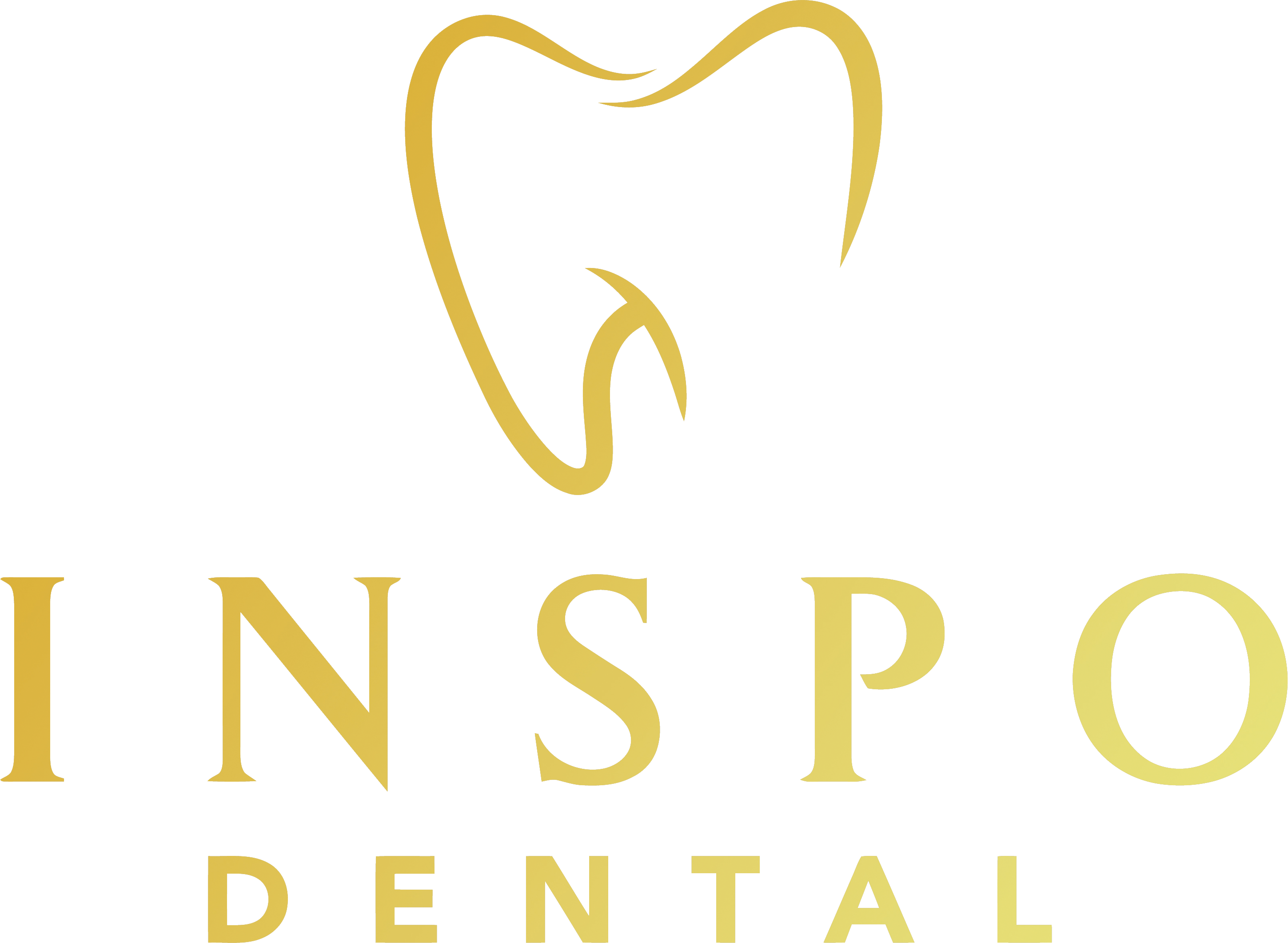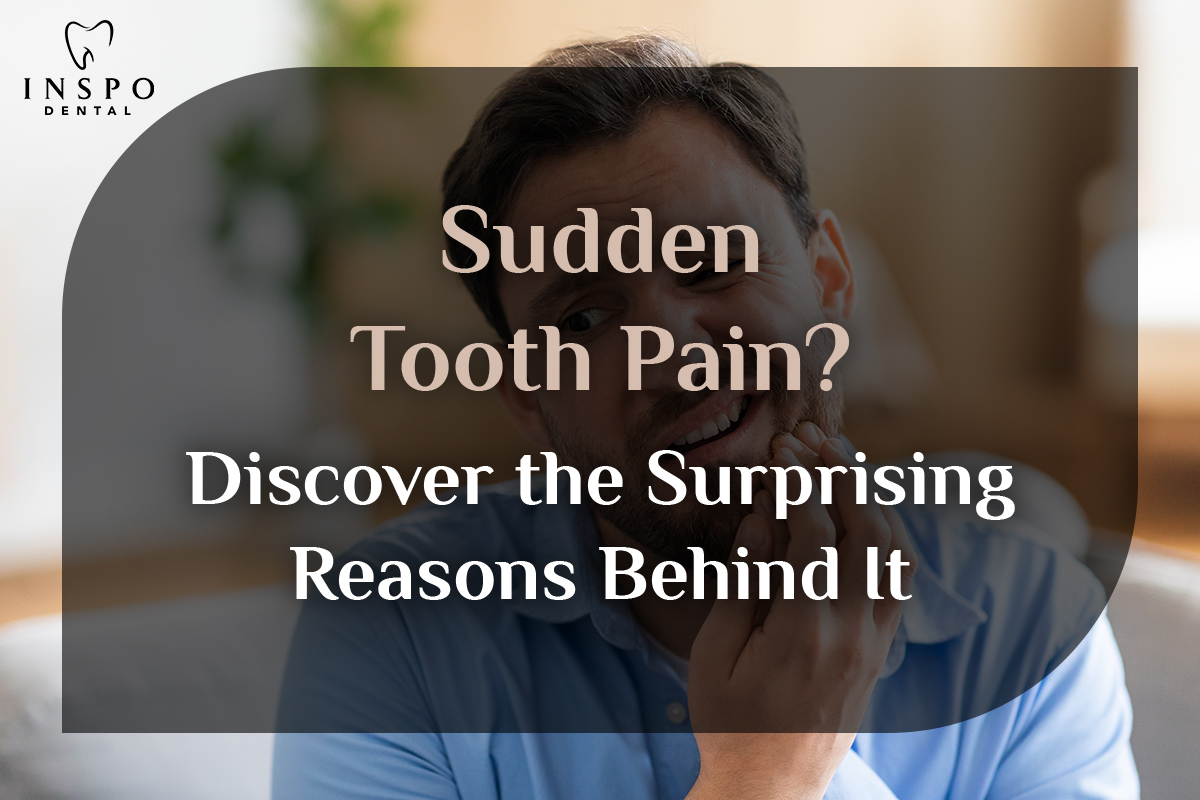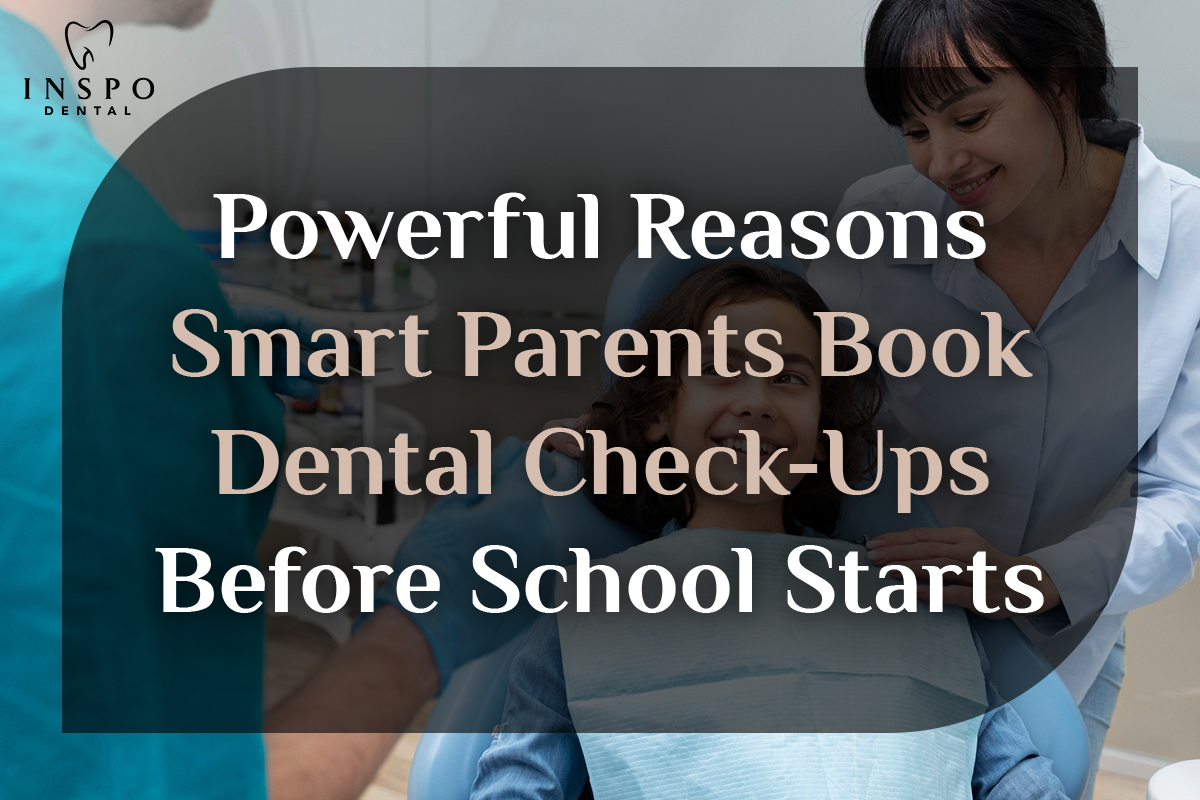Introduction: When a Toothache Strikes Without Warning
Few things can derail your day faster than a sudden, sharp toothache. One moment, you’re fine. The next—you’re wincing with pain, wondering what went wrong. Tooth pain is your body’s way of telling you something’s not quite right, and when it comes out of nowhere, it can feel even more alarming. But not every sudden toothache is due to a cavity or infection. In fact, many causes are surprisingly overlooked.
In this guide, we’ll explore the lesser-known but common triggers behind unexpected tooth pain and provide practical, dentist-approved tips to help you handle the discomfort—before it turns into something serious.
🧠 Understanding Sudden Tooth Pain: What It Really Means
Tooth pain is not just a symptom—it’s a signal. And when it strikes suddenly, it usually means an acute trigger has set off your tooth’s nerve endings. The pain might come in waves, feel sharp and stabbing, or manifest as a dull throb.
✅ Common characteristics of sudden tooth pain include:
- Sudden sharp sensitivity when eating or drinking
- Pain without visible damage to the tooth
- Pressure-induced aches (biting or chewing)
- Pain that worsens at night or when lying down
The underlying causes can range from mild to severe—and not all of them are visible to the naked eye.
🔍 1. Cracked or Fractured Tooth (Even If You Can’t See It)
One of the most surprising culprits of sudden tooth pain is a tiny crack in your tooth. Sometimes, this damage is so small it’s not visible without an X-ray or special lighting.
✅ Key signs of a cracked tooth:
- Pain when chewing, especially when releasing the bite
- Sudden sensitivity to hot or cold foods
- Inconsistent pain that comes and goes
A cracked tooth doesn’t always bleed or cause swelling, making it hard to spot. The only sign may be sudden, intermittent pain—especially when chewing.
🦠 2. Gum Recession or Exposed Tooth Roots
As we age—or if we brush too hard—our gums can slowly pull back from the tooth surface. This exposes the tooth’s roots, which are not protected by enamel and are extremely sensitive to stimuli.
✅ Causes of gum recession include:
- Aggressive brushing
- Gum disease (gingivitis or periodontitis)
- Teeth grinding (bruxism)
- Misaligned teeth or bite
You may suddenly feel a zing when drinking cold water or eating sweets—classic signs of exposed roots.
🧊 3. Tooth Sensitivity Due to Enamel Erosion
If your enamel has worn down, your teeth may become hyper-sensitive to temperature, touch, or even air. This can cause sharp pain without any visible damage or decay.
✅ Common causes of enamel erosion:
- Acidic foods and drinks (sodas, citrus, vinegar)
- Acid reflux (GERD)
- Overuse of whitening products
- Aggressive brushing techniques
Pain may flare suddenly when biting into something hot, cold, or sweet—even if your teeth look perfectly fine.
💥 4. Sinus Infections Can Mimic Tooth Pain
Surprised? Your sinuses sit right above your upper teeth. When inflamed due to infection, allergies, or seasonal congestion, they can exert pressure on the roots of your upper molars, causing you to feel as though your tooth is the issue.
✅ Signs your sinus might be the true cause:
- Tooth pain only in upper back teeth
- Sinus pressure or congestion
- Pain increases when bending over
- Recent cold or seasonal allergies
Treating the underlying sinus issue usually resolves the tooth discomfort.
🔐 5. Bruxism: The Pain You Don’t Notice at Night
Clenching or grinding your teeth while sleeping (a condition called bruxism) can put extreme pressure on your teeth and jaw, leading to sudden pain.
✅ Symptoms of bruxism include:
- Morning tooth or jaw soreness
- Flattened or chipped tooth surfaces
- Headaches or earaches
- Neck and shoulder tension
Most people don’t realize they grind their teeth until a dentist notices the signs or the pain becomes too obvious to ignore.
🪥 6. Dental Abscess or Sudden Infection
A dental abscess is a pus-filled infection at the root of a tooth or in the gum. It often causes sudden, severe pain—and if left untreated, can become a serious health risk.
✅ Warning signs of a dental abscess:
- Swelling in the face or gums
- Pain that radiates to the jaw or ear
- Fever or general unwellness
- Bitter taste in the mouth or bad breath
This is one of the most urgent causes of tooth pain and should be treated by a dentist immediately.
📉 7. Receding Fillings or Loose Dental Work
If you’ve had dental work in the past, like fillings, crowns, or bridges, they can sometimes become loose or worn down over time—leading to unexpected toothaches.
✅ Clues that your dental work may be failing:
- Pain when biting in a specific spot
- A feeling that your tooth has “shifted”
- Sudden sensitivity around a previously treated area
Seeing your dentist quickly can prevent more extensive damage or decay underneath the failing dental work.
🧪 8. Tooth Pain From Allergic Reactions
While rare, some people experience sudden oral pain due to allergic reactions to dental materials or products, such as whitening strips, new toothpaste, or mouthwash.
✅ Possible triggers include:
- Ingredients like hydrogen peroxide or alcohol
- Artificial flavorings or preservatives
- Dental adhesives or composites
If your pain coincided with trying a new product, it might not be the tooth—it could be a reaction in the surrounding tissues.
🩸 9. Impacted Wisdom Teeth or Erupting Molars
For teens and young adults, sudden tooth pain may stem from a wisdom tooth that’s impacted (trapped under the gum) or trying to erupt.
✅ Look for:
- Swelling or pain in the back of the mouth
- Redness or bleeding around gums
- Difficulty opening the mouth or chewing
This type of pain often feels like pressure building in the jaw and can worsen quickly if infection sets in.
💉 10. Post-Treatment Tooth Pain (Normal or Not?)
Sometimes, a tooth will ache days or even weeks after a dental treatment like a filling, crown, or deep cleaning.
✅ This pain might be normal if:
- It’s mild and decreases each day
- It only occurs when biting
✅ Seek care if:
- The pain increases over time
- You experience throbbing, fever, or swelling
Your tooth may be healing—or reacting to trauma from the procedure. A follow-up visit can clarify.
🛑 When Is Sudden Tooth Pain an Emergency?
✅ Seek immediate dental care if:
- The pain is severe or constant
- You have swelling in your face or jaw
- You notice pus, bleeding, or a foul taste
- There’s trauma (like a cracked or knocked-out tooth)
- You have a fever with oral pain
Delaying treatment could lead to tooth loss or a more serious systemic infection.
🧰 How to Get Relief Before You See a Dentist
While waiting for your appointment, here are some proven home remedies for temporary relief:
✅ Toothache relief methods:
- Rinse with warm saltwater
- Take OTC pain relievers (like ibuprofen)
- Apply a cold compress to the cheek
- Avoid very hot, cold, or sugary foods
- Use a toothpaste for sensitive teeth
⚠️ Note: These remedies help manage pain—they don’t treat the cause. Always follow up with a dental professional.
💬 Common Myths About Sudden Tooth Pain (Debunked)
Let’s clear up a few misconceptions that might be misleading you:
❌ “If there’s no cavity, there’s no problem.”
✔️ Many issues like gum recession or bruxism don’t involve decay but still cause pain.
❌ “Pain will go away on its own.”
✔️ It may fade temporarily but often returns stronger if the cause isn’t treated.
❌ “It’s just sensitivity—it’s harmless.”
✔️ Chronic sensitivity may signal enamel erosion or exposed roots, which require attention.
📊 Lifestyle Factors That May Be Triggering Sudden Tooth Pain
Sometimes, the source of sudden tooth pain isn’t medical—it’s lifestyle-related. Everyday habits can unexpectedly affect oral health in powerful ways, especially when overlooked for long periods.
✅ Lifestyle habits linked to sudden tooth pain:
- Frequent snacking: Constant eating—especially sugary snacks—doesn’t allow saliva enough time to neutralize acids, increasing sensitivity and decay risk.
- Dehydration: Lack of water reduces saliva production, which is essential for tooth protection. Dry mouth can accelerate decay and discomfort.
- Mouth breathing: Breathing through the mouth during sleep or exercise dries out oral tissues, leading to heightened tooth sensitivity and gum irritation.
- Smoking or vaping: Both contribute to dry mouth, weaken immune response, and can trigger gum inflammation—all potential sources of sudden pain.
A holistic review of your daily patterns might uncover surprising triggers contributing to tooth discomfort.
🌎 Environmental Triggers That Can Lead to Oral Sensitivity
Beyond your habits, the environment you live in may also have an impact on sudden tooth pain. Elements you may not directly associate with dental health could play a hidden role.
✅ Examples of environmental triggers:
- Cold weather: Stepping out into chilly air or breathing in cold gusts can suddenly trigger nerve pain in sensitive teeth.
- Air pollution: Exposure to pollutants and chemicals—especially in industrial environments—can inflame gums and dry the mouth, increasing tooth vulnerability.
- Water quality: Regions with low-fluoride or highly chlorinated water can contribute to weakened enamel and oral irritation over time.
- Altitude changes: Traveling to higher altitudes (such as flying or mountain climbing) can cause pressure fluctuations that affect the sinuses and referred tooth pain.
If your pain correlates with environmental shifts or travel, it’s worth discussing with your dentist.
📚 The Psychology of Tooth Pain: Is Stress Making It Worse?
Believe it or not, your emotional health plays a powerful role in how you perceive and even develop oral pain. Stress, anxiety, and even depression can manifest in physical symptoms, including toothaches.
✅ How psychological stress impacts dental pain:
- Muscle tension: Clenching the jaw (even subconsciously) can stress the teeth and lead to soreness.
- Cortisol spike: Elevated cortisol weakens immune response, increasing your risk of inflammation and gum issues.
- Neglected hygiene: Stress can disrupt routines, leading to skipped brushing or dental visits.
- Altered pain perception: Anxiety can heighten sensitivity to sensations that would otherwise go unnoticed.
Addressing emotional well-being is just as essential as brushing and flossing when dealing with unexplained or recurring tooth discomfort.
🏠 DIY Remedies to Avoid (That Might Make Things Worse)
In a rush to find relief, many people turn to the internet for DIY toothache solutions. While some are harmless, others can worsen your situation or damage your oral tissues.
❌ Risky at-home treatments to avoid:
- Applying aspirin directly to the tooth: This can burn your gum tissue and doesn’t treat the cause.
- Using hydrogen peroxide as mouthwash: In high concentrations or when used improperly, it can damage cells and delay healing.
- Essential oil overload: Some oils (like clove) can provide relief, but only in proper dilutions. Overuse can irritate the gums.
- Picking at the gums or tooth: Trying to “fix” something stuck using sharp objects (like pins or tweezers) can cause trauma or infection.
✔️ Stick with dentist-approved solutions and always consult a professional before experimenting with home remedies.
🧬 Unusual Medical Conditions That Cause Tooth Pain
In rare cases, sudden tooth pain might not stem from a dental issue at all, but from a different health condition manifesting in your mouth.
✅ Medical conditions linked to unexplained tooth pain:
- Trigeminal Neuralgia: A nerve disorder causing intense, electric-shock-like facial pain, often mistaken for a dental issue.
- Heart problems: In some cases, cardiac issues can radiate pain to the jaw or teeth—especially in the lower jaw.
- Shingles: This viral infection can affect facial nerves, causing oral pain before any visible rash appears.
- Multiple Sclerosis: MS-related nerve issues may cause facial or tooth discomfort in isolated episodes.
If your dentist finds no dental cause for your pain, a referral to a neurologist or physician may be the next step.
🧒 What About Sudden Tooth Pain in Children?
Children can also experience sudden tooth pain—but the causes and management are often different from adults.
✅ Common causes in kids:
- New molars or baby teeth falling out
- Cavities from sugary diets
- Accidental tooth trauma during play
- Bruxism related to growth or anxiety
Parents should pay close attention to:
- Complaints of pain when eating
- Nighttime tooth discomfort
- Unusual behavior like avoiding food or crying while brushing
Early dental visits can prevent long-term oral health issues and help children grow up with strong, healthy smiles.
🪙 Cost Considerations: How to Budget for Unexpected Dental Visits
Sudden tooth pain often leads to an unexpected trip to the dentist—and many people worry about the cost. Fortunately, there are ways to reduce the financial burden while getting necessary care.
✅ Budgeting tips:
- Use flexible spending accounts (FSAs) or HSAs to cover dental emergencies
- Look for dental savings plans or membership programs
- Ask about in-house financing or payment plans
- Compare urgent care dental providers if insurance is limited
Don’t let the fear of cost delay your care—early intervention often saves money in the long run by preventing bigger problems.
🌐 Tele-Dentistry: A New Option for Immediate Guidance
If you’re not sure whether your pain is serious or if you can’t get to a clinic right away, tele-dentistry is a growing solution that lets you speak with a dental professional virtually.
✅ Benefits of tele-dentistry:
- Immediate advice from home
- Guidance on whether it’s an emergency
- Prescriptions for antibiotics or pain relief, if needed
- Peace of mind when you need answers fast
Many clinics now offer same-day virtual consultations, which can be life-saving in rural or underserved areas.
🔄 The Recurrence Cycle: Why Does Sudden Tooth Pain Keep Coming Back?
Some people experience toothaches that vanish and return later, sometimes weeks apart. This pattern can indicate a deeper issue that hasn’t been fully treated.
✅ Recurring toothache causes:
- Undiagnosed hairline fracture
- Early-stage abscess not yet visible on X-ray
- Inconsistent hygiene leading to fluctuating inflammation
- Worn dental restorations leaking bacteria over time
If you’re stuck in this on-again, off-again cycle, it’s time for a more comprehensive dental evaluation, possibly with 3D imaging or referrals to a specialist.
🧭 How to Create a Personalized Tooth Pain Action Plan
Being prepared for sudden tooth pain means less stress and faster action when it strikes. Here’s how to build your own “tooth pain toolkit.”
✅ What to include:
- Contact info for your regular dentist and a nearby emergency clinic
- A small bottle of clove oil or a dentist-recommended topical analgesic
- Soft toothbrush and desensitizing toothpaste
- Cold compress or ice pack
- Record of recent dental treatments
This small prep step can make a big difference when that unexpected ache ruins your day.
🧭 What Your Dentist Will Likely Do
During your visit, your dentist may:
✅ Examine your teeth visually and with tools
✅ Take X-rays to check below the gum line
✅ Test for sensitivity, bite pressure, or infection
✅ Recommend solutions like fillings, nightguards, or root canal therapy
The key is getting the correct diagnosis quickly so proper treatment can start without delay.
🔁 Prevention: How to Avoid Sudden Tooth Pain in the Future
Preventive care is the best way to stop tooth pain before it starts. Simple daily habits can protect your teeth long-term.
✅ Best practices include:
- Brushing gently with fluoride toothpaste
- Flossing daily to clean between teeth
- Visiting the dentist every 6 months
- Wearing a nightguard if you grind teeth
- Avoiding excessive acidic or sugary foods
- Drinking plenty of water to balance pH
Small lifestyle changes today can prevent painful surprises tomorrow.
Final Thoughts: Don’t Ignore the Signal
Sudden tooth pain is your body’s emergency alert system—it’s telling you something needs attention. Whether it’s a minor sensitivity or a sign of something more serious, listening to that signal is crucial. The sooner you act, the better your chances of a fast, pain-free recovery.
If you’re experiencing sudden tooth pain, book a dental appointment as soon as possible. In the meantime, follow the relief tips above to safely ease your discomfort.
📞 Talk to a Dentist Before It Gets Worse
Your smile deserves protection—and that starts with paying attention to sudden pain. Please don’t wait for it to go away on its own. Schedule a consultation with your dentist today and get the peace of mind you deserve.






